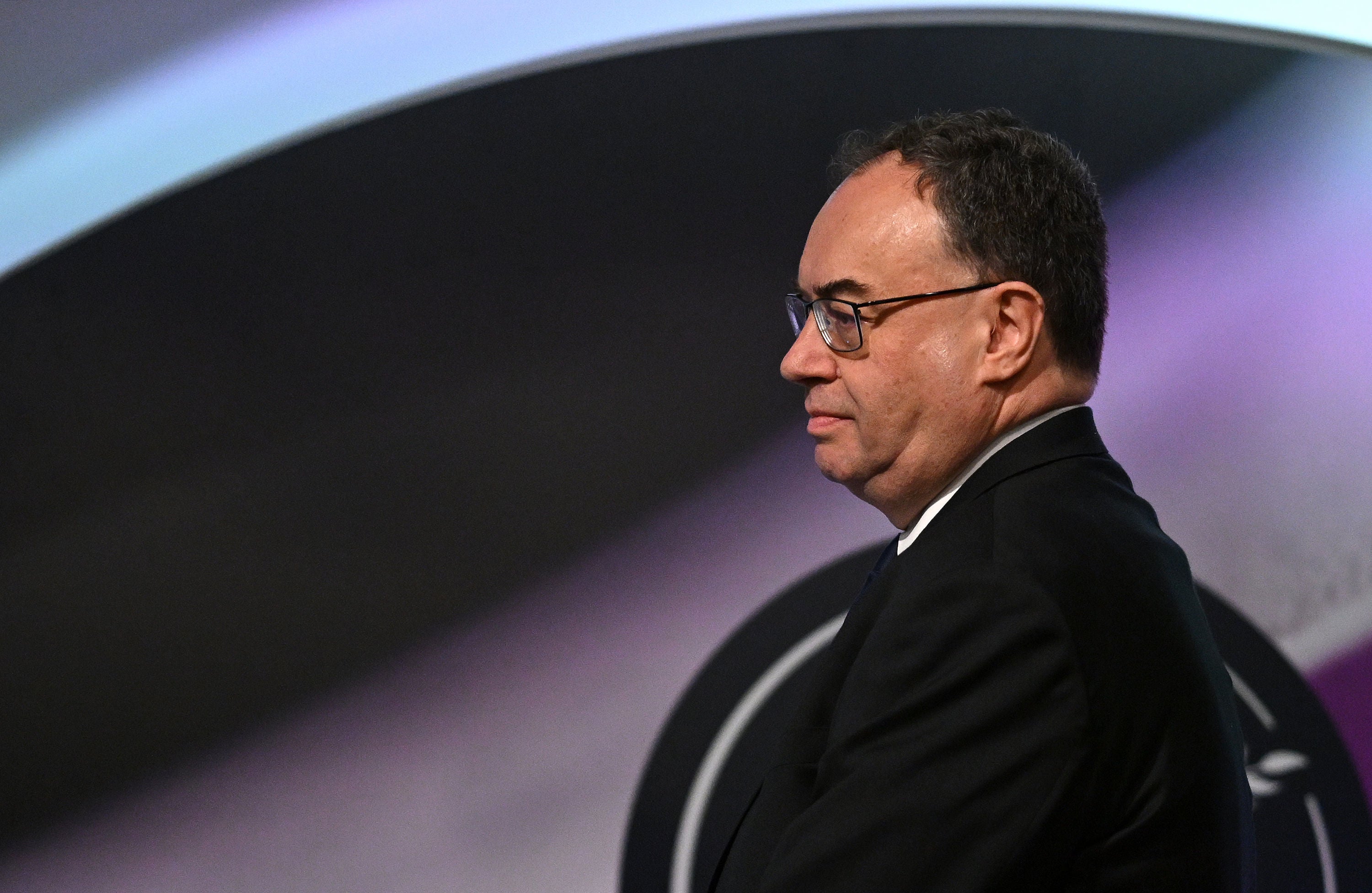Bank softens stance on interest rate cuts – but Andrew Bailey warns: ‘We’re not there yet’
Instability in the Middle East and an inflationary giveaway Budget from Jeremy Hunt could dash hopes of an early interest rate cut, says James Moore


It was a racing certainty that the Bank of England’s rate-setting Monetary Policy Committee (MPC) would on Thursday keep interest rates at 5.25 per cent – the 16-year high that has been causing pain throughout Britain’s economy.
Nonetheless, businesses were eagerly awaiting the MPC’s longer-term signals and the complexion of the vote. For those hoping for an early rate cut (praying, in the case of smaller firms desperate for affordable credit) there might be grounds for some optimism.
First, let’s look at the vote: last time, six backed no change, with the dissenting three favouring a quarter-point rise. This time, six backed no change but only two called for a rise, with one seeking a cut.
The rate-cutting dove was Swati Dhingra, who has consistently argued for a less aggressive approach to tackling inflation. Among the hawks, Catherine Mann has been similarly consistent about the need to be tougher; standing with her was Jonathan Haskell, who has been nearly as hardline.
However, recently-appointed Megan Greene defected to the majority. All three dissenting voters on Thursday were external members of the MPC (the Bank’s in-house cohort of five members has, with one exception during the recent cycle, voted as a bloc.)
What gives hope to those seeking a cut came from the MPC statement; it has previously signalled that cuts would not begin until the third quarter of 2024 and that progress down the slope will be slow. This time, the MPC said “key indicators of inflation persistence remained elevated” but that “further evidence would be required about how entrenched this persistence would be and therefore about how long the current [rate] would need to be maintained”.
More directly, governor Andrew Bailey told reporters: “We’re not there yet.” But the committee seems to be indicating that cuts could come earlier than Q3 if inflation continues to undershoot forecasts. Fears about domestic price and wage pressures have certainly eased a little, to become “more evenly balanced”. The jobs market is deteriorating and wage settlements are easing; a continuation of this trend would stop the MPC fretting about a 1970s-style wage-price spiral.
Also remember that, despite December’s modest rise, inflation has fallen quite a bit faster than the Bank expected and is now projected to “temporarily” hit the hallowed 2 per cent target in the second quarter of this year before ticking up again in the second half (largely down to “base effects” caused by the fluctuation in energy prices).
And there’s a new line from the Bank: “The MPC remains prepared to adjust monetary policy as warranted by the economic data.”
Parts of the City feel the Bank is being too cautious and will have to move more quickly than previously indicated. “Our forecast that inflation will fall further and faster than the Bank expects suggests it will change its tune in the coming months,” said Capital Economics. “A rate cut in June is still possible.”
Possible, but still unlikely; continuing instability in the Middle East is dangerous for multiple reasons, one of which is its potential impact on energy prices... escalating conflict could blow a polluting cloud over the Bank’s projections. So, too, could Jeremy Hunt; despite warnings from the IMF, the chancellor is widely expected to offer pre-election tax cuts in his Budget next month.
Hunt restored some of Britain’s fiscal credibility after the disastrous tax-cutting mini-Budget put together by Liz Truss and Kwasi Kwarteng. If he opts for a giveaway, the resulting inflation will change the Bank’s calculus and could quash any hopes that Britain’s interest rate hell is nearing an end.



Join our commenting forum
Join thought-provoking conversations, follow other Independent readers and see their replies
Comments